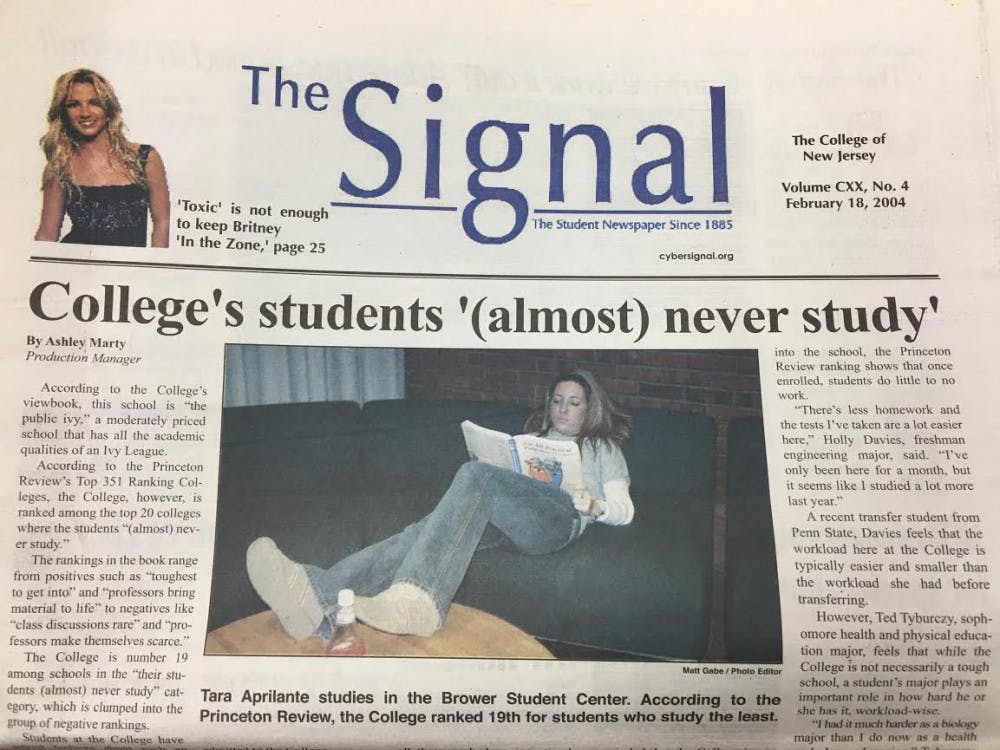By Elise Schoening
Features Editor
Every week, Features Editor Elise Schoening hits the archives and finds old Signals that relate to current College topics and top stories.
With midterm exams approaching, the library will soon be overcrowded with students working hard to obtain high grades. However, it seems students of the College may not have always been so studious. In 2004, the College was criticized for offering light classes with small workloads. “The Princeton Review” named the College on its national ranking of top colleges where students “(almost) never study.”
According to the College’s viewbook, this school is “the public ivy,” a moderately priced school that has all the academic qualities of an Ivy League.
According to “The Princeton Review’s” Top 351 Ranking Colleges, the College, however, is ranked among the top 20 colleges where students “(almost) never study.”
The rankings in the book range from positives such as “toughest to get into” and professors bring material to life” to negatives like “class discussions rare” and “professors make themselves scarce.”
The College is number 19 among schools in the “their students (almost) never study” category, which is clumped into the group of negative rankings.
Students at the College have mixed feelings about such an embarrassing ranking. Some students feel the ranking is accurate and that very little work is done once admitted to the College.
Other students feel it is a matter of time management and that students here just manage to get all their work done in a timely manner, so they can enjoy other activities.
Students here are constantly reminded that the College is one of the most selective colleges in the Northeast. But despite the hard work that goes into getting into the school, the Princeton Review ranking shows that once enrolled, students do little to no work.
“There’s less homework and tests I’ve taken are a lot easier here,” Holly Davies, freshman engineering major, said. “I’ve only been here for a month, but it seems like I studied a lot more last year.”
A recent transfer student from Penn State, Davies feels that the workload here at the College is typically easier and smaller than the workload she had before transferring.
However, Ted Tyburczy, sophomore health and physical education major, feels that while the College is not necessarily a tough school, a student’s major plays an important role in how hard he or she has it, workload-wise.
“I had it much harder as a biology major than I do now as a health and pys. ed major,” Tyburczy said. “But no matter the workload gets pretty tough at times. It’s never impossible, but most of the teachers just give tests from what they talk about in class so if you don’t fall asleep, which does happen from time to time, you can get by with minimum study time,” Tyburczy added.







